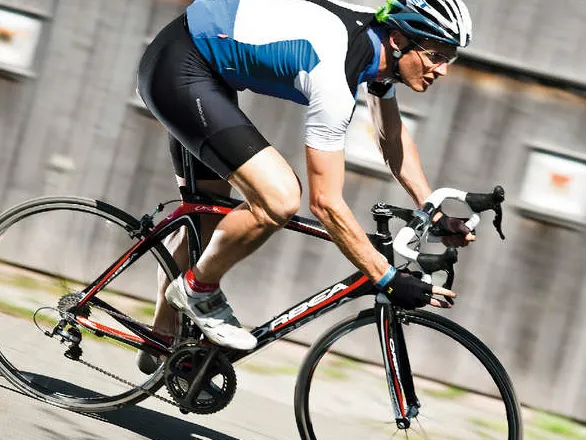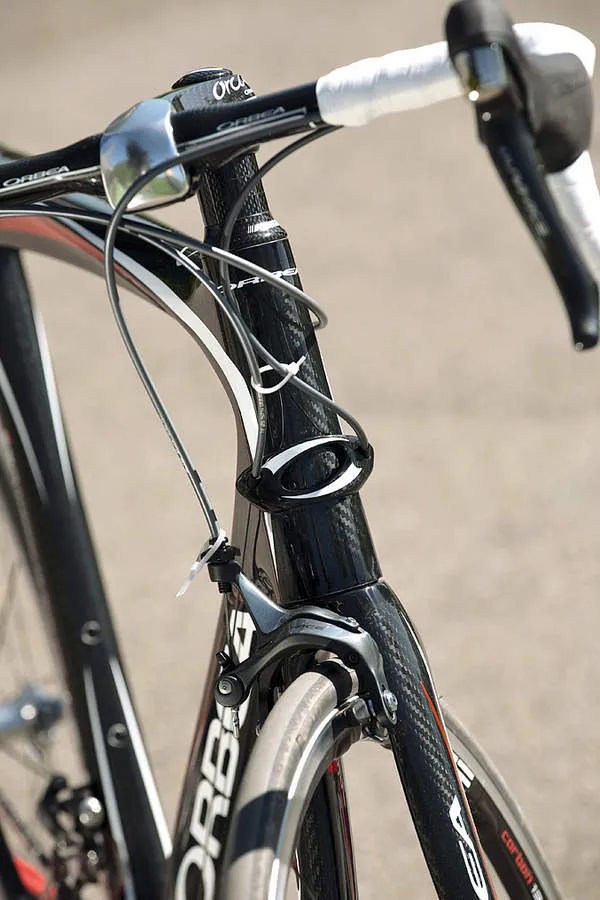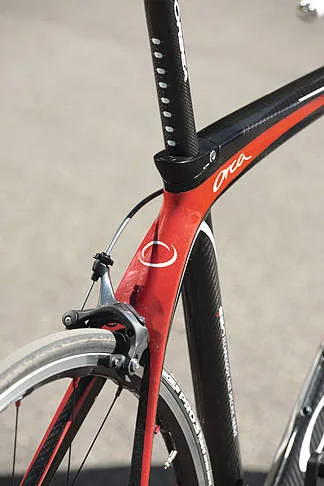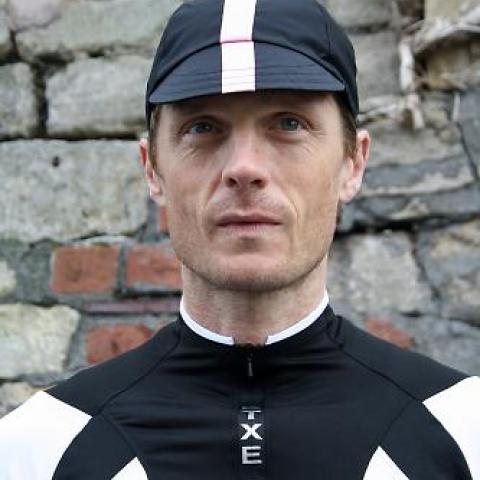Orbea's top-of-the-range Orca is the bike ridden by the Euskaltel-Euskadi pro team, including current Olympic road race champion Samuel Sanchez.
Looks can be deceiving, and while the Orca’s frame might not make you think lightweight at first glance, on first ride it’s a different story, as we found out when we slung a leg over its TDR Dura-Ace equipped incarnation.
Ride & handling: Crisp acceleration gives you a whale of a time
There’s no doubting the Orbea’s lightweight credentials once you spin the cranks. It snaps into action from the off, accelerating with a crispness that marks it out as a high quality contender.
Our test course was full of sharp turns and the Orca never tired of whipping back up to speed as soon as we got back on the gas. It certainly gives you that boost you want when you spend this kind of money.
The beefy tubes and BB30 bottom bracket result in a bike that’s remarkably stiff even when you stand up on the pedals and muscle it around, and it’s stable and confidence-inspiring through the corners so you soon learn to hit them full-on without any worries.
The Orca provides a really silky ride too. Orbea reckon this is down to the use of ‘nerves’ – continuous long fibres that extend right around the frame. The width of these nerves, along with frame wall thickness and the carbon layup design, is varied according to the size of the frame so they all ride the same.
In other words, Orbea have engineered the Orca to dampen out vibration uniformly no matter which size you go for. Whatever it is, there’s certainly a marked lack of road buzz on this bike even when you’re riding at speed.
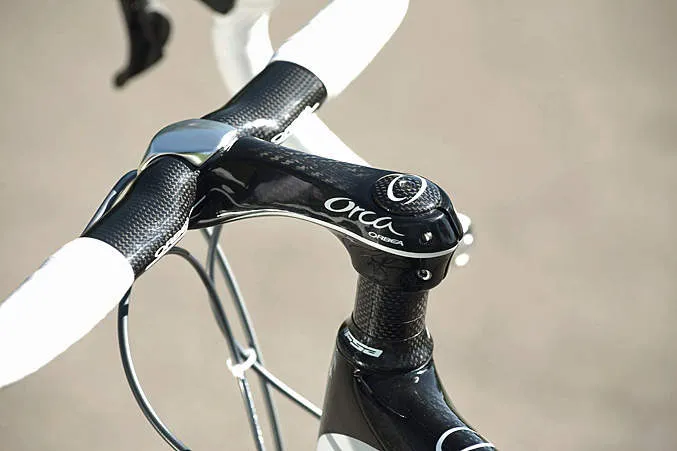
Frame & equipment: Light, stiff and comfy chassis, with a choice of different builds
The Orca’s monocoque frame doesn’t look especially lightweight. The carbon tubes – 70 percent ultra-stiff M40J Toray carbon, 30 percent M30S high-modulus carbon if you’re taking notes – are wide and chunky, there’s a load of surface area where they meet, and the seatstays merge above the rear wheel so you get a very broad wishbone arrangement back there.
But looks can be deceptive – our 57cm model weighed in at a feathery 7.4kg (16.3lb) with pedals attached. Just as notable as the weight is the Orbea’s rigidity. The top tube and down tube blend together at the head tube to create a real slab of material at the front end, and the lower headset race is 1½in rather than the usual 1in in for extra stiffness.
The angle-edged tubes through the centre section aren’t going to be shoved around, you get an oversized BB30 bottom bracket shell and the boxy rear end is notably taut as well.
Several neat frame details finish things off. The carbon head tube badge, for example, doubles up as a gear cable guide, the magnesium seat collar is recessed into the frame and you get a replaceable rear mech hanger. And there’s a lifetime warranty on the frame, which should set your mind at ease.
The Orca is available in various different builds from the £3,669 TLT, which comes with a Shimano Ultegra groupset and RS80 wheels, to the £5,799 TDi2 featuring Shimano’s new digital transmission and Dura-Ace 1380 wheels.
These are top-end prices, but this is a top-end bike – a superb, lightweight race machine with loads of comfort thrown into the mix. We really didn’t want to give it back.
